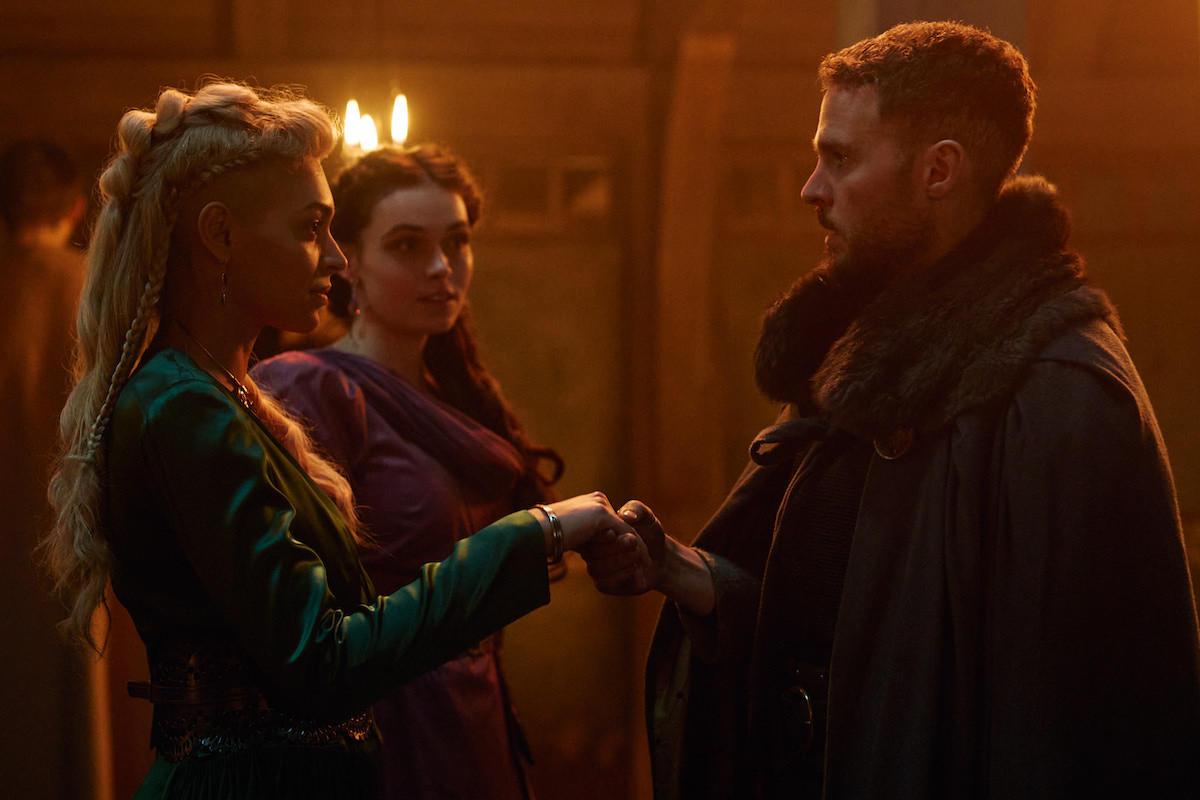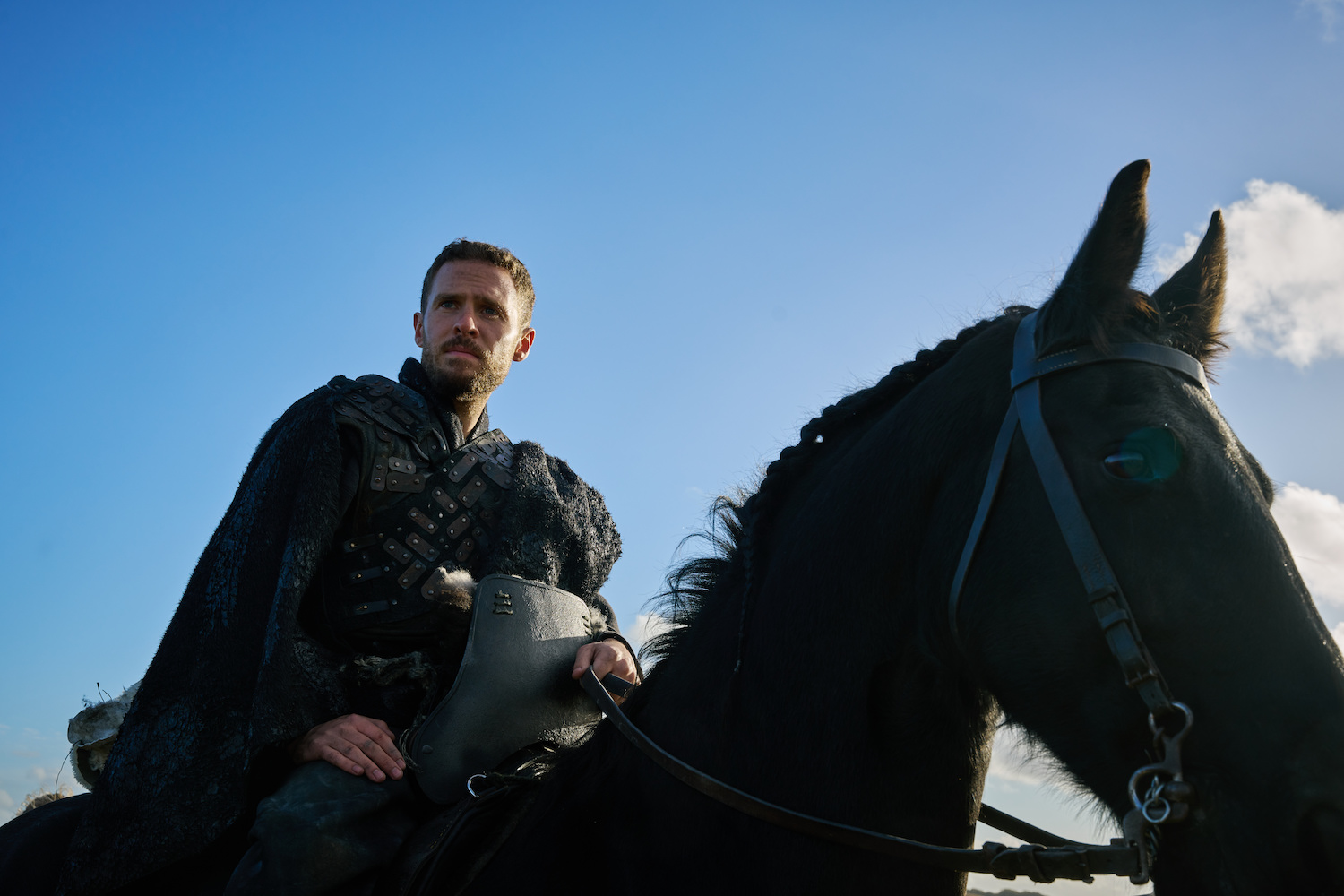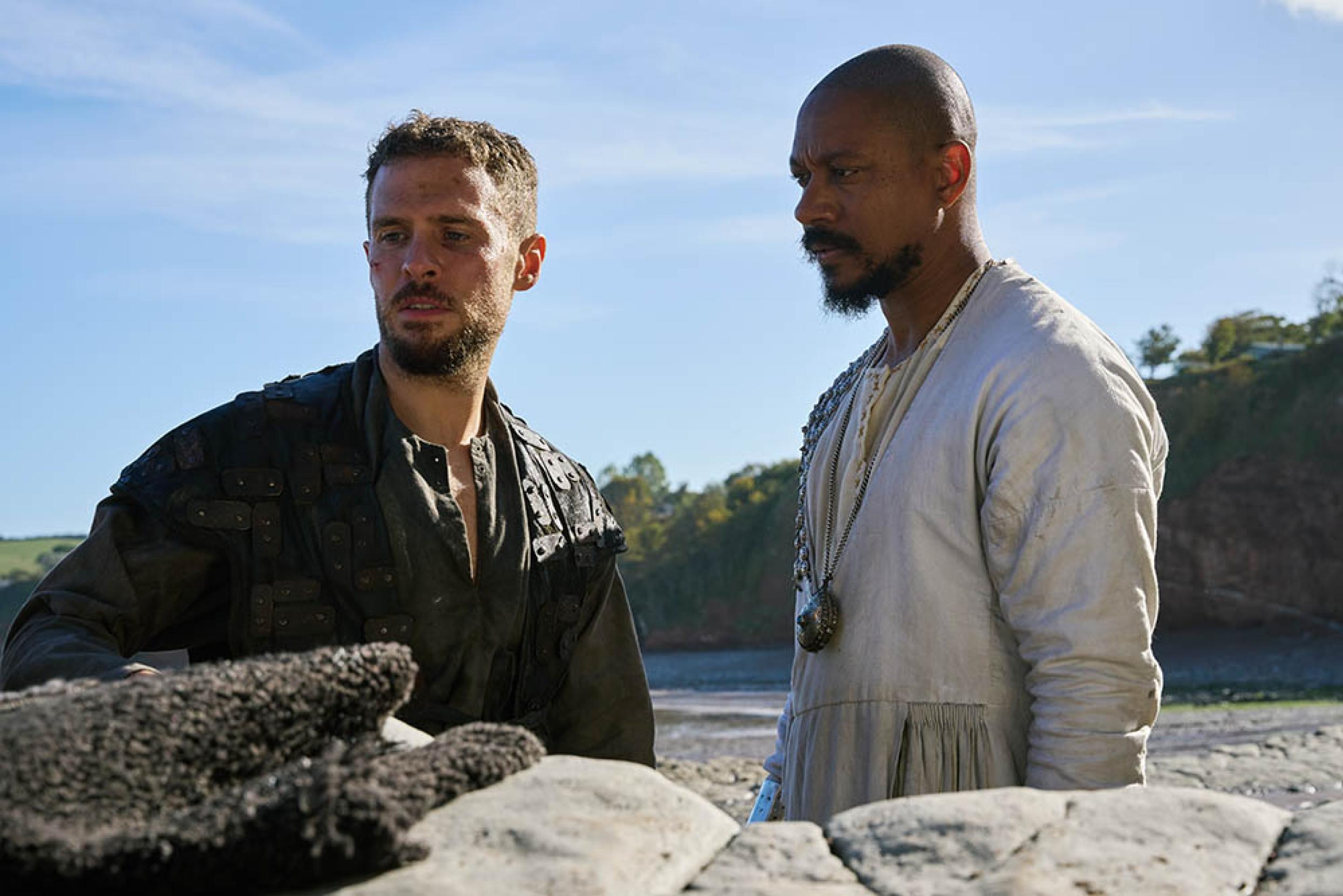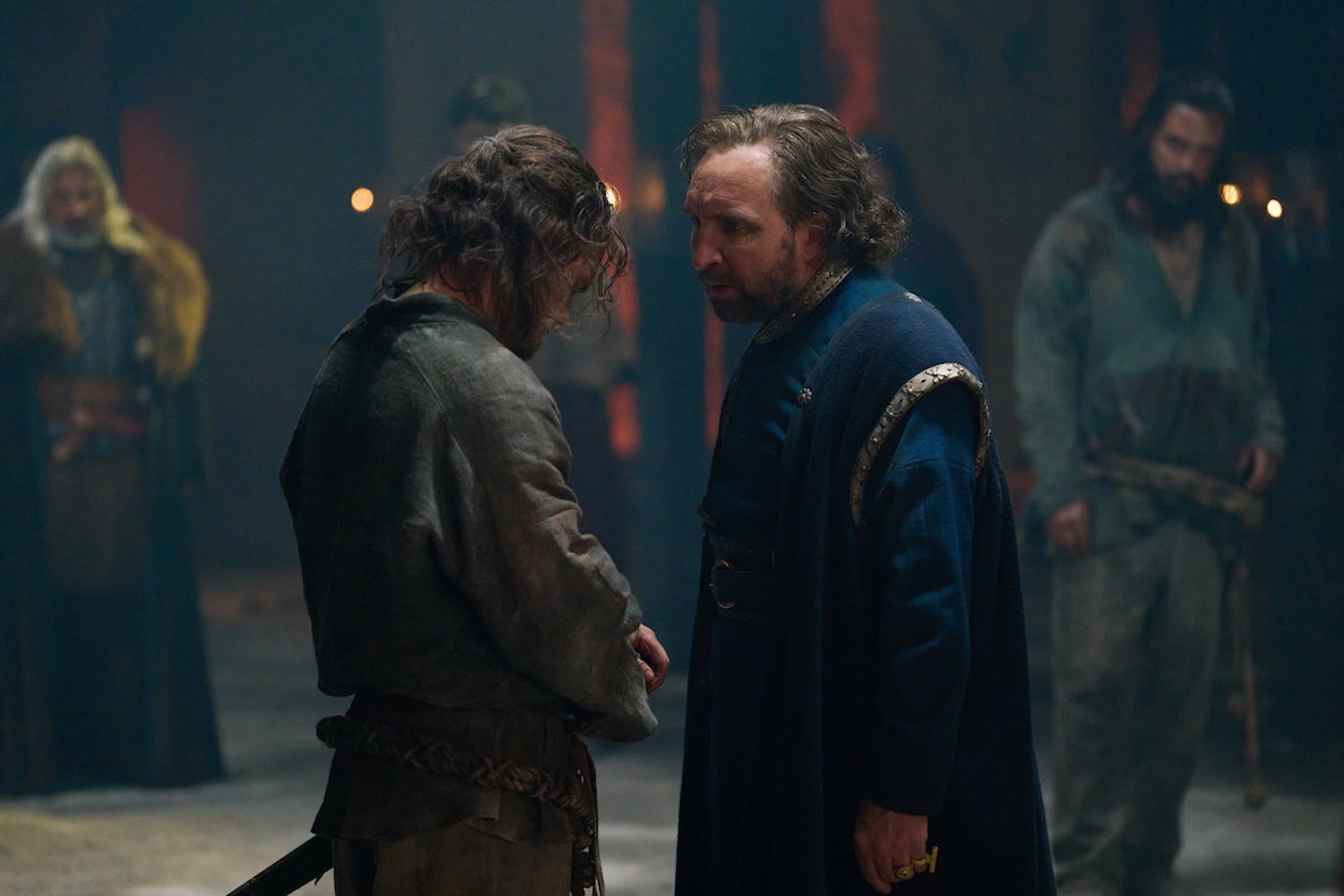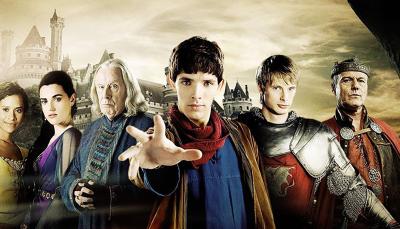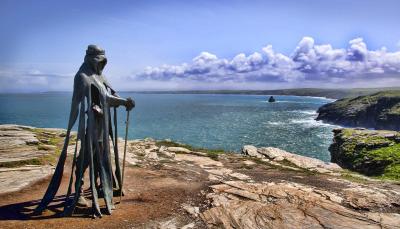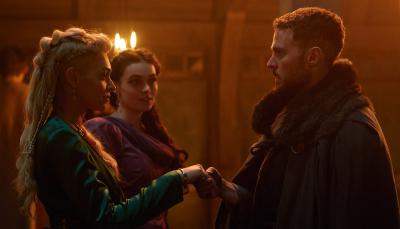Why Is It So Hard to Make a Good Arthurian Drama?
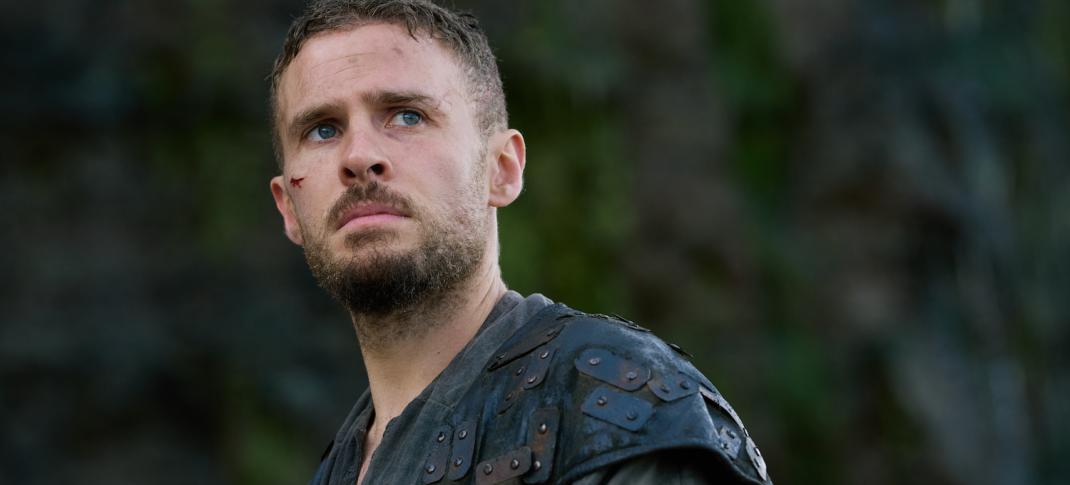
Iain De Caestecker in "The Winter King"
(Photo: Courtesy of MGM+)
After a disappointing debut, streaming service MGM+ announced it wouldn't bring its Bernard Cornwell adaptation The Winter King back for a second season. This news probably didn't register for that many people at the time, given how few likely even knew MGM+ existed, let alone that an entire season of a series called The Winter King had aired on it. MGM+'s general failure to get noticed is a problem in and of itself, particularly since it has one of the most popular BBC series in recent years (Steven Knight's Rogue Heroes) on its platform. But that's also a rant for a different post and a problem that MGM+ is hardly the only one struggling to solve.
What is interesting (and more than a little problematic) is that, by all rights, The Winter King *should* have been a reasonably respectable hit. The show was based on Cornwell's popular Warlord Chronicles series, a retelling of the Arthur myth that attempts to present the legend in a more historically accurate context, reimagining the famous hero as a bastard son struggling to unite the fractious tribes of 5th-century Britain against the invading Saxon army. The drama featured a recognizable star (Iain De Caestecker) in its lead role, and its setting felt more like Westeros than Camelot, teeming with Game of Thrones-style political intrigue, violence, and an unfortunate amount of sexual menace.
(Your mileage may vary on whether you think that makes a good drama, but it's undoubtedly what's currently popular.)
Yet despite everything the show had going for it on paper, The Winter King was just another in a long line of Arthurian flops. But why? The story of King Arthur is one of the most enduring legends we have. Yet almost no one in television or feature films can seem to make an adaptation that gets to the heart of its longevity. Yes, The Winter King failed, but it's hardly alone in misunderstanding why this tale has such staying power.
The story of King Arthur is one of our great foundational myths. So much so that despite its status as a distinctly British story, you can find versions of it in French, Welsh, Cornish, Irish, and German texts. These are all undoubtedly different interpretations of the story, and not every familiar element appears in every retelling, but the central themes are always the same. There are also a few narrative constants: Arthur is a king who unites his country, defeats its enemies, and brings about a golden age of peace and prosperity. Unfortunately, it doesn’t last, and Camelot’s grandest dreams are never fully realized.
The end of Arthur’s tale is a tragic one. His shining kingdom ultimately falls. The people he loves most betray him. He makes many mistakes and trusts those who don’t deserve it. But even in the story’s concluding darkness, there is still the promise of light. After all, another thing the many versions of the Arthur myth have in common is that they never really end — not really, and not forever. Arthur is the once and future king and is meant to return one day, supposedly when England most needs him. In the end, it is a story of hope.
Arthur matters because his story is, at its heart, an aspirational one: an exhortation to ourselves and our society to be and do better than we have before, to make of the world our own Camelot where we can, and to hold fast to the idea that even in the darkest times, there is light. That in our worst moments, we are not alone and that goodness is still waiting in the wings to triumph. That’s probably the most enduring reason we love this story and have loved it for so long. But it’s also the key element that our modern adaptations keep getting wrong: Arthur himself.
For whatever reason, almost every recent Arthurian adaptation finds Arthur the least interesting part of the story. In some versions, he's an afterthought, a bit of a player to the stories happening around him (usually, this means Lancelot and Guinevere). In others, he's an idealistic dreamer whose ideas struggle to coexist with the grim truths of reality. In others, he's treated like an idiot for dreaming of a better world while his wife is busy cheating on him. And on some level, these choices make sense. I mean, they're wrong, of course, but the entertainment industry has long struggled with telling stories about genuine goodness and heroism.
Our pop culture seems forever convinced that being "good" is the same as being "boring." Grim stories that subvert the familiar tropes of legends like this are somehow more interesting (or simply better) because they are dark. Filmmakers rarely consider why so many people have been drawn to Arthur and his story for so long. These adaptations fail because they forget that goodness and decency aren't character traits but actions. They require choices that often require a great deal of hard work to achieve and a significant level of commitment to maintain. Repeatedly turning toward the path of light isn't easy, but that repeated decision sits at the heart of this myth, of a story that dreams of a better world for us all.
Unfortunately, what we get instead are stories that revel in breaking the familiar hero down, insisting that everyone playing along at home was objectively stupid for believing in them in the first place or foolish for hoping the world could be something greater than what it is. Much of the blame for this trend on television lies with HBO’s Game of Thrones, which spent the better part of a decade telling viewers that traditionally “good”-coded characters like Sansa Stark were bland whiners. At the same time, more transgressive figures like Daenerys Targaryen and Cersei Lannister flourished as the ostensible heroes of the story.
For its part, The Winter King treats Arthur as more of an idea rather than a three-dimensional character. His formative years take place off-screen, and by the time he returns to his homeland of Dumonia, he's already an incredible fighter, has a band of loyal warriors who live by a code of honor, and is painfully loyal to a fault. The character has no arc because Arthur arrives on our screens almost fully formed, without any apparent flaws. Of course, everyone thinks he's boring!
(Spoiler alert: He is!)
Other adaptations decide that what matters is the recognizable intellectual property at the center. These adaptations strip away much of the original legend in the name of edginess or expediency, leaving little more than a husk of the familiar tale behind. In King Arthur: The Legend of the Sword, director Guy Ritchie's Arthur is an orphan raised in a Londinium brothel who grows up as a pickpocket and street brawler.
In the 2009 adaptation, King Arthur, Clive Owen's once-and-future-king is an officer in the Roman army, Merlin is leading a Scottish insurgency against his troops, and Guinevere is an ass-kicking Celt. Meanwhile, First Knight is a movie about Lancelot, but at least they got Sean Connery to play Arthur. How do so many properties keep getting it all so wrong?
In truth, the only Arthurian adaptation of the past few decades is probably the BBC's Merlin, a low-budget children's adventure show that follows Arthur as a young adult. The series isn't remarkably faithful to the specifics of the legend in many ways — Merlin is also a teen growing up as a servant alongside his future king, and there's a talking dragon — but it gets the spirit of the story and why it matters exactly right.
This is an Arthur who is young, often foolish, and can be boorish and cruel. But it is also an Arthur capable of genuine growth, who apologizes when he gets things wrong, who does the right thing when it counts, and perhaps, most importantly, who wants to be better than he is. Merlin's take on the character insists heroes evolve rather than emerge fully formed with their ideals intact, but rather learn things like humility, kindness, and integrity as they go. Maybe it's also why, despite his machismo and general buffoonery, the show's Arthur is still so likable, even at his most overbearing and awful.
The death of The Winter King isn't that surprising. After all, hardly anyone watched it, and even Cornwell fans had a fair few gripes about the show's take on his novels. But as another entry in a long line of Arthurian misfires gets consigned to the ash heap of entertainment history, it does make one wonder what on earth we have to do to get a retelling of this legend that does right by it. At least Merlin is streaming for free on Tubi.

